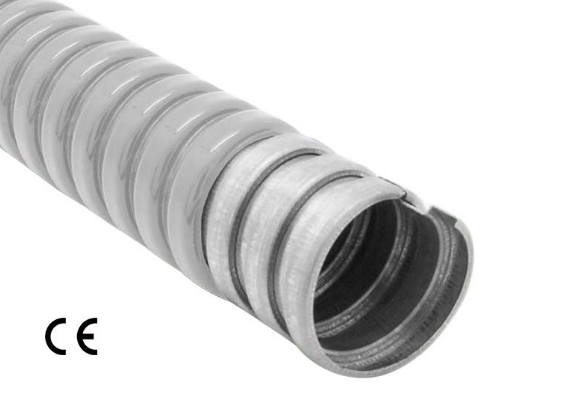Jul. 14, 2023
When it comes to installing electrical wiring in outdoor environments, it is crucial to use flexible electrical conduits that are specifically designed to withstand the challenges posed by outdoor conditions. Outdoor installations require conduits that can protect the electrical cables from moisture, UV radiation, extreme temperatures, and physical damage. Several types of flexible electrical conduits are suitable for outdoor use, each with its own advantages and specific applications.
1. PVC Conduit:
PVC (Polyvinyl Chloride) conduit is one of the most common types of conduits used for outdoor installations. It is lightweight, cost-effective, and resistant to moisture, corrosion, and UV radiation. PVC conduits are available in different sizes and can be easily cut and assembled using PVC solvent cement. They provide excellent protection for electrical cables in outdoor environments, making them suitable for a wide range of applications, such as landscape lighting, sprinkler systems, and outdoor electrical outlets.
2. Rigid Metal Conduit (RMC):
Rigid Metal Conduit, also known as RMC or galvanized steel conduit, is a heavy-duty option for outdoor electrical installations. It is made of steel and coated with zinc to provide superior protection against corrosion. RMC is highly durable and can withstand physical impacts and extreme weather conditions. However, it is rigid and requires special tools and fittings for installation. RMC is commonly used in industrial settings, outdoor infrastructure projects, and areas where the conduit may be exposed to significant mechanical stress.

Flexible Metal Conduit Water Proof -PAG13PVC Series
3. Intermediate Metal Conduit (IMC):
Intermediate Metal Conduit is another type of metal conduit suitable for outdoor use. It is lighter and more cost-effective than RMC while still providing good protection for electrical cables. IMC is made of galvanized steel and has a thinner wall compared to RMC, making it easier to work with and bend. It offers better resistance to corrosion than PVC conduits and is often used in commercial and industrial applications where durability and protection are essential.
4. Liquidtight Flexible Metal Conduit (LFMC):
LFMC, also known as "Sealtite," is a liquid tight flexible metal conduit that is designed to resist the penetration of moisture and liquids. It consists of a spiral-wound strip of metal with a plastic coating and a liquidtight outer jacket. LFMC is highly flexible and can be easily bent and routed around obstacles. It is suitable for outdoor installations where the conduit may be exposed to water or other liquids, such as underground wiring, outdoor lighting, and irrigation systems.
5. Flexible Metallic Conduit (FMC):
Flexible Metallic Conduit, commonly referred to as "Greenfield" or "Flex," is a flexible conduit made of interlocking metal strips. It provides good protection for electrical cables and allows for easy installation in outdoor environments. FMC is resistant to moisture, UV radiation, and physical damage. It is commonly used for outdoor applications like outdoor lighting, air conditioning units, and underground wiring where flexibility is required.
6. Non-Metallic Liquidtight Conduit (LFNC):
LFNC, also known as "Carflex" or "Sealtite," is a flexible non-metallic conduit designed for outdoor use. It is made of PVC or thermoplastic materials and is coated with a liquidtight outer jacket. LFNC is lightweight, corrosion-resistant, and provides excellent protection against moisture and UV radiation. It is commonly used in outdoor applications where flexibility and liquid resistance are required, such as outdoor signage, landscape lighting, and communication systems.
When selecting a flexible electrical conduit for outdoor installations, it is important to consider factors such as the specific application, environmental conditions, flexibility requirements, and local electrical codes. Consulting with a qualified electrician or electrical engineer is highly recommended to ensure the chosen conduit meets the necessary standards and regulations for outdoor use in your region.
If you want to know more information about flexible electrical conduit, please contact us. We will provide professional answers.















